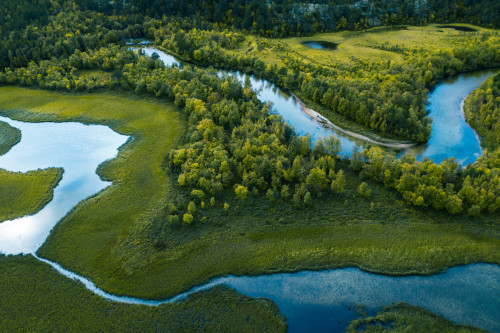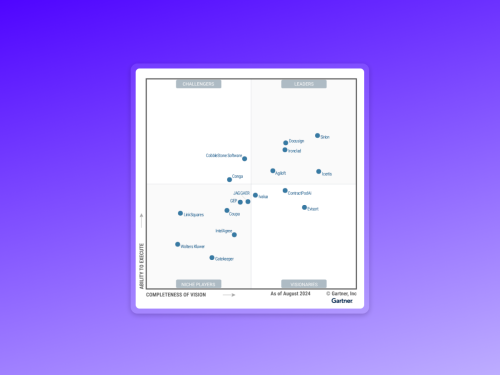
Arbor Day Special Edition: An Interview with the Environmental Paper Network

By Amy Skeeters-Behrens, Executive Director, Docusign IMPACT
The Environmental Paper Network (EPN) is a global nonprofit whose mission is to promote more sustainable paper consumption and production. The EPN’s Paper Calculator helps Docusign customers calculate the impact they are making in protecting the world’s forests by using Docusign eSignature. In honor of Arbor Day, I spoke to Joshua Martin, Director of the EPN about its impact around the world.
Joshua, can you share more about the EPN's mission?
The Environmental Paper Network is a growing network of over 170 nonprofit organizations striving for more sustainable paper consumption and production. In short, we bring together a diverse, global set of leading environmental advocacy organizations to accelerate social and environmental improvement for the forest, paper and the bioenergy industry, guided by a common roadmap called the Global Paper Vision. Our members include organizations large and small from the likes of NRDC, Greenpeace and WWF to local community groups impacted by a specific pulp mill.
Beyond your member organizations, who are the key stakeholders that you work with?
One key stakeholder group is corporations since they drive the demand side of the equation. Our goal is to make it easy to be more responsible about paper – use less paper overall and when necessary, choose environmentally friendly options.
As you know our most widely used tool is the Paper Calculator- a free and easy to use life cycle impact estimator of the natural resource savings of responsible paper choices and paper conservation.
Next, we publish guidance documents with everything from essential information for banks and lending institutions to reduce environmental risk in their investments to basic recommendations for individuals and companies on responsible paper purchasing. We periodically publish a comprehensive “State of the Paper Industry” report as well as focused fact sheets on things like how to reduce an organization’s wasteful paper consumption. We also make it easy to source better paper by partnering with the organization, Canopy, to maintain the EcoPaper Database of the most sustainable paper products available.
Why is it so important to reduce our paper usage?
It’s important to understand that paper doesn’t just create additional waste. It has significant impacts on the environment- especially on forests and biodiversity. The world’s voracious demand for paper, particularly in North American where consumption is four times the global average, has resulted in a loss of carbon-rich forests, wildlife habitats and widespread conversion to monoculture, industrial tree plantations.
We have to advocate more strongly for the protection and restoration of these forests as a key solution to climate change. Study after study shows the critical role of protecting and restoring natural forests in any pathway to avoid detrimental impacts to the world. We need to address overconsumption and allow forests to expand and be part of the climate solution.
Deforestation is an issue in many places. Are there particular areas of focus for the EPN?
Indonesia’s rainforests are home to some of the greatest biological diversity in the world but have also experienced some of the highest levels of deforestation. These forests are the only place in the world you can find tigers, orangutans, rhinos, and elephants living together in the wild. Unfortunately, many of these species are also critically endangered.
The main drivers of this devastation have been the forest products industry - including the pulp and paper sector. International demand for cheap copy paper, books, tissue, packaging, toilet paper and shopping bags has fueled the clearing of natural rainforests and the creation of the wood plantations that replace them.
EPN has worked closely with its local NGO partners in Indonesia to secure “no deforestation” commitments from Indonesian paper companies, and we have been a critical partner in monitoring and reporting on the progress being made.
And how long have you been working on this issue?
The Environmental Paper Network was born in 2002 at an extraordinary event. 75 visionary representatives from more than 50 conservation organizations from the U.S., Canada, Indonesia and the U.K. gathered together in-person and agreed to work together for the first time toward an environmentally and socially sustainable paper production system. Thanks to these visionary folks, the EPN was born and it’s been one of the most effective NGO collaborations in the world.
What keeps you going day in and day out and inspires you to keep fighting for a more sustainable future?
I think what helps the most is that the work of the Environmental Paper Network is rooted in bringing people and organizations together from around the world in a common cause. I’ve been blessed to meet brilliant, dedicated, inspiring people around the world who are achieving amazing things for their community and for nature, sometimes under really tough economic and/or political conditions.
I also find hope in the forest itself. Over my thirteen years with EPN, I’ve had the chance to visit people in some of the most incredible ancient and endangered forests around the world, from Indonesia to British Columbia to Ukraine, to learn about the ecology and to understand more deeply why they are worth fighting for. Closer to home, I visit the forests in the southern Appalachian Mountains. Taking my children into the forest and seeing their awe as we find salamanders under stones, reminds me of why protecting the future is so important, and it gives me energy.
Spending time in nature is also about finding a personal balance that hopefully I can bring to the EPN’s work pursuing balance between human needs and activities and the earth’s finite resources. I invite everyone to consider finding time to visit a woods or forest near them on this Arbor Day.
Joshua, thank you so much for all of the work that you all do to help the world be smarter about its paper use and ultimately protect forests and the communities that depend on them.
Thank you for everything that you all are doing to direct the resources of Docusign on this critical issue. We are pleased to be working with you.
Related posts
Discover what's new with Docusign IAM or start with eSignature for free


